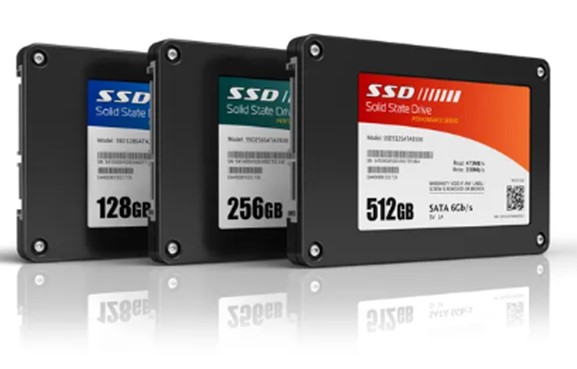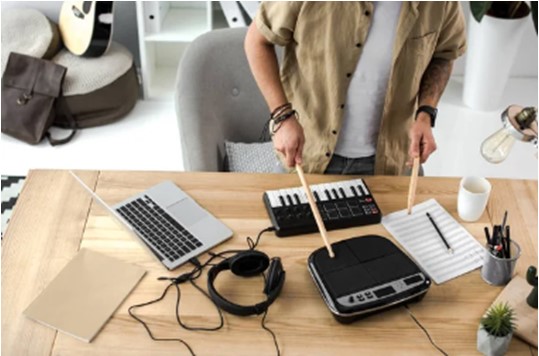Are you having a hard time comparing Studio One vs FL Studio to determine which one is better?
Welcome to the club! Believe it or not, every day thousands of musicians and producers find themselves in the same situation and are left nothing short of confused.
With so many options out there, it can be very difficult to choose the right program for your productions. Even more so considering no DAW is awfully cheap.
But don’t worry, you’ve come to the right place for answers.
Below, you’ll find a list of several categories we’ll use to compare each program. I’m sure that once we’re done, you’ll have a much clearer idea of what each one has to offer.
The 6 categories we’ll use to compare Studio One vs FL Studio are:
Keep reading to see which DAW wins!

This is the first thing most people consider when thinking about buying a new DAW, and honestly, who can blame them?
Whether you choose Studio One or FL Studio, you’re making a commitment and spending your hard-earned money, so ensuring you’re getting the best bang for your buck is essential.
Just as it happens with several other programs out there, you have a wide range of options to choose from. Studio One offers the Artist Edition for $99.95, the Professional version for a whopping $399.95, or a monthly subscription that includes the latter and all its features for as little as $14.95.
FL Studio, on the other hand, also offers different versions ranging from $99 to $499! But while getting the cheapest version may sound attractive, you’ll likely feel differently after learning that you can’t record audio with it.
That’s not a dealbreaker if you only want to mix and master tracks you’ve already recorded elsewhere, but let’s be honest. For the same price, you can get Studio One’s Artist version and record as many tracks as you want.
I’d say this one is a tie.
Both Studio One and FL Studio are compatible with Windows and macOS, so you’ll have no problems getting the DAWs to work with your system.
That being said, system compatibility is not the only thing we should be considering. Plugin support is also very important.
Although both programs are compatible with VST 1/2/3, loading them onto the interface can be a little more challenging within FL Studio. I got my start with it, and soon after I moved to Studio One. I can honestly tell you the third-party plugin loading process is much smoother on the latter.
Not to mention that you’re much less likely to have Studio One crash when loading your favorite plugins, which is something I can’t say for FL Studio.

If you’re in the habit of filling your computer’s HDD to the brim, this definitely interests you!
Program file sizes get larger by the day. 5 years ago, 500 GB was more than enough for a lifetime, but today, it’s barely enough today to run your operating system and some editing software.
Any DAW available on the market will take up space on your PC, there’s no way around it. However, you do have control over how much you give up.
The Studio One or FL Studio version that you choose will greatly determine how large the final file size is when all the included plugins are installed. But even then, there are significant differences between one and the other.
The professional version of Studio One takes up a whopping 32 GB of storage space when fully installed, whereas FL Studio’s “All Plugins Edition” is significantly smaller than that.
This may not sound like a big deal, but when you take into consideration that the former only has 41 native plugins and the latter has 107, it’s hard not to wonder how Image-Line managed to pack so much into a decent file size.
So, if storage space is an issue for you, FL Studio is a great way to get many plugins without sacrificing system performance.
It has already been established that FL Studio offers more than double the amount of stock plugins that Studio One does.
But is quantity all that matters?
Absolutely not! When looking at stock plugins, you should also look at the quality of the sound you’re getting from them, whether they’re user-friendly and how customizable they are.
FL Studio is known for being visually attractive, and its stock plugins are not the exception. Whether you’re using the Fruity Parametric EQ or blasting the volume with the Maximus Multiband Maximizer, you’re in for a lot of eye candy.
This is not to say that Studio One does not have a nice-looking interface, but usually its plugins are much more focused on functionality than they are on aesthetics.
Moreover, since Studio One’s stock plugins waste no time looking pretty, they take full advantage of their features, offering a much superior grade of customization and tweaking than their FL Studio counterparts.
If precision is your thing, Studio One should be your go-to. And if you need to look at something colorful and appealing while producing, FL Studio is for you.

Some people would argue that FL Studio is the easier DAW to use, but I think it all depends on your workflow and personal preferences.
No matter what DAW you choose, there will always be a learning curve you’ll have to master before being able to produce seamlessly. No way around that.
Having said that, I can understand why some people might find FL Studio friendlier, mainly due to how colorful and visually appealing it is. However, looks are not everything.
When it comes to bus creation, track routing, or FX sends and bypassing, Studio One comes out on top in every instance. Not only does it grant you a higher degree of control over every little setting, but also makes track management simpler.
That being said, I’m only speaking from a general perspective. The genre of music you’re trying to produce will also have a big impact on the ease of use.
For most genres, I’d stick to Studio One if you want a DAW that feels professional and intuitive at the same time. However, FL Studio was originally created for electronic music, and thus, the program’s options for beat-making are far superior.
Last but definitely not least, let’s talk about stability.
There’s no denying that DAWs have become more and more stable as the years have passed. If you ever used either one of these 5 years ago, you probably know they were much more prone to crash or fail back then than they are now.
However, they’re not perfect yet.
Regardless of which one you’re using, now and then you’ll still experience crashing or freezing when loading a new plugin or changing your sample rate to something your CPU can’t handle. And before you start looking into other options, let me assure you that this is something that’s present across all platforms.
That being said, I’d be lying if I told you that one is not more stable than the other. In general, Studio One has proven to be the better alternative when it comes to uninterrupted workflow, as it tends to crash significantly less than FL Studio.
This is likely due to its superior compatibility with different VSTs and audio hardware, as well as the way in which its interface is designed.
As someone who’s used both DAWs, I can personally attest to this.
Now, don’t be discouraged if your heart tells you to go for FL Studio, the crashes aren’t that bad or frequent. Worst case scenario, you’ll get one a couple of times per week.
Studio One vs FL Studio, which one’s better? That’s the million-dollar question. Answering it is never simple, as most of the time it all depends on who’s being asked.
Luckily, as I hope you’ve learned in this piece, both DAWs have a lot to offer and can satisfy the needs of most producers. Whether you’re into making electronic music or shredding your guitar alongside 80’s rock masterpieces, both programs will work wonders.
Take your personal preferences into consideration and be objective about the plugins you’ll actually need. I’m sure that, whatever you choose, you’ll be happy with your purchase.
Thank you so much for sticking with me all the way to the end. If you found this article helpful, you’ll be glad to know that we upload new content weekly. Make sure to check out all our other incredible resources below to become a Tech Detective yourself! Best of luck to you.